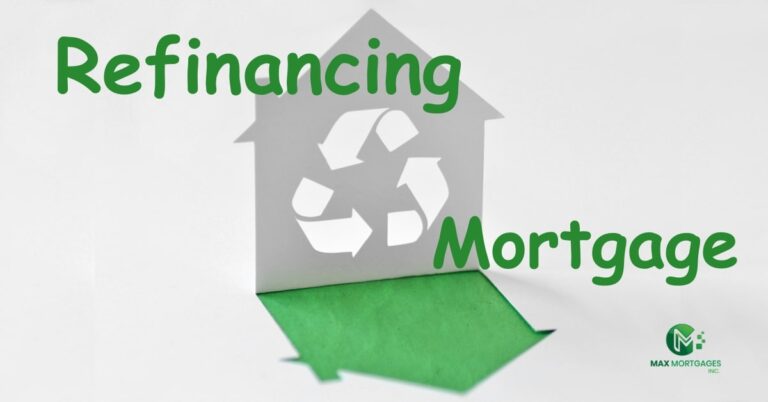Refinancing your mortgage can offer several financial advantages, including lower monthly payments, access to home equity, and the ability to consolidate debt.
By replacing your existing loan with a new one, you may be able to reduce your interest rate, lower your monthly payment, and potentially access funds for home improvements or other significant purchases.
Additionally, refinancing can help simplify your finances by combining multiple debts into a single, lower-interest loan. However, it’s important to carefully consider the costs and potential risks associated with refinancing before making a decision.
Potential benefits of refinancing
Mortgage refinancing can lower your interest rate, reduce monthly payments, or shorten your loan term. It can also help consolidate debt or unlock equity, enhancing overall financial flexibility. Here are some benefits of refinancing.
1. Lowering your monthly mortgage payment
If current interest rates are lower than your original loan’s rate, refinancing can significantly decrease your monthly mortgage payment. This extra money can be used to pay down other debts, save for future expenses, or improve your overall quality of life.
2. Obtaining a shorter loan term
By refinancing your mortgage, you can obtain a shorter loan term compared to your current loan. A shorter loan term means you will make larger monthly payments, which can significantly reduce the total amount of interest you pay over the life of the loan.
3. Accessing home equity
Accessing home equity allows you to borrow a lump sum of cash based on the equity you have built up in your home. The funds can be used for home improvements, debt consolidation, education costs, or other significant purchases.
4. Improving your credit score
Refinancing can support your credit score by lowering monthly payments, making it easier to stay current on your mortgage. With consistent, timely payments, your credit score can gradually improve, reflecting your strengthened financial stability.
5. Consolidating debt
Refinancing can be an effective strategy for consolidating debt, particularly for homeowners looking to manage multiple high-interest obligations.
Additionally, if refinancing allows you to consolidate high-interest debts, your credit utilization ratio may improve, giving your score an extra lift and reinforcing your financial credibility.
Factors to consider before refinancing
Before refinancing, assess factors like interest rates, fees, and your long-term financial goals. Understanding these can help you decide if refinancing truly benefits your situation.
1. Your current mortgage terms
Before considering refinancing, it’s essential to have a clear understanding of your current mortgage terms, including your interest rate, loan term, monthly payment, prepayment penalty, equity, and any other relevant provisions.
2. Your credit score
To improve your credit score, focus on paying your bills on time, keeping your credit utilization low, limiting new credit, disputing errors on your credit report, and considering credit counseling if needed. By taking these steps, you can increase your chances of obtaining favorable terms when refinancing your mortgage.
3. Your financial goals
Your financial goals play a crucial role in determining whether refinancing your mortgage is the right decision for you. By understanding your long-term objectives, you can evaluate the potential benefits and drawbacks of refinancing and make an informed decision.
4. Closing costs
Before refinancing, be aware of the closing costs, which can include appraisal fees, application fees, and attorney charges. These costs impact your total savings from refinancing and should be factored into your decision.
5. Interest rate trends
Interest rate trends significantly influence mortgage refinancing decisions. Monitoring these trends can help you identify the best times to refinance, potentially securing lower rates that reduce your monthly payments.
How to find the best refinancing deal?
Here discover the strategies and tips for finding the most competitive refinancing rates and terms to save money on your mortgage.
1. Shopping around for lenders
Shopping around for lenders is a crucial step in the refinancing process. By comparing offers from multiple private mortgage lenders, you can secure the most favorable interest rate and terms for your mortgage.
2. Comparing interest rates and terms
Comparing interest rates and terms is a crucial step in the refinancing process. By understanding the different options available, you can choose the loan that best suits your needs and financial goals.
3. Using a mortgage broker
Using a mortgage broker for refinancing your mortgage can simplify the process and potentially save you money. A broker has access to a wide range of lenders and can help you find the best rates and terms tailored to your financial situation.
The refinancing process step-by-step
Following are the steps involved in refinancing a mortgage:
1. Pre-qualification and application
Pre-qualification is the initial step in the refinancing process where you assess your potential eligibility for a new mortgage.
This informal evaluation typically involves providing a lender with basic financial information, such as your income, debts, credit score, and the value of your home.
During pre-qualification, the lender will offer you a rough estimate of how much you might be able to borrow and what your interest rate could be based on the information provided.
After completing the pre-qualification process and deciding to proceed with refinancing, the next step is the formal application.
This involves submitting a comprehensive mortgage application to the lender or broker of your choice.
2. Document submission
Document submission is a critical step in the mortgage refinancing process, where you provide the lender with the necessary paperwork to support your application.
Proper and timely submission of these documents can significantly streamline the refinancing process and help ensure a successful outcome.
Once you have gathered the necessary documentation, submit it to your lender or mortgage broker as directed. Ensure that all documents are complete, accurate, and up to date to avoid delays in processing.
3. Underwriting and appraisal
Underwriting is the process where the lender assesses your financial situation and evaluates the risk of granting you a new mortgage.
This step involves a thorough review of the documents you submitted during the application process, including income verification, credit history, and debt-to-income ratio.
The appraisal process determines the current market value of the property you are refinancing. This assessment is crucial because the lender needs to ensure that the property is worth the amount being borrowed.
4. Closing
Before the closing appointment, you will receive a Closing Disclosure (CD) from your lender, which provides a detailed summary of the final loan terms, projected monthly payments, and all closing costs associated with the refinance. It’s important to review this document carefully to ensure that everything aligns with what you were previously quoted in the Loan Estimate.
Conclusion
In the ever-evolving financial landscape, refinancing your mortgage stands out as a strategic option that can significantly enhance your financial health.
As a mortgage broker, I have witnessed firsthand how homeowners can benefit from lower interest rates, access to home equity, and effective debt consolidation.
By leveraging lower interest rates, accessing home equity, or consolidating debt, you can reduce your monthly expenses and free up funds for other important financial goals.
While the benefits of refinancing are significant, it’s crucial to approach the process with careful consideration of your unique circumstances, including your current mortgage terms, closing costs, and long-term financial aspirations.
With the right preparation and research, refinancing can lead to substantial savings and improved financial flexibility.

Leena Sohal, a Principal Broker, brings over 20 years of mortgage industry experience to her role as a licensed mortgage broker for the past 15 years. Starting her career with industry giants TD and CIBC, Leena established a foundation based on integrity and professionalism. As the driving force behind Max Mortgages, she is dedicated to simplifying the mortgage process for clients, offering personalized service in the ever-changing housing market.
Under her leadership, Max Mortgages, a local independent business in the Greater Toronto Area, has earned commendations for exceptional customer service, embodying a commitment to genuine assistance and lasting client relationships.
FSRA Lic. # M09000197




